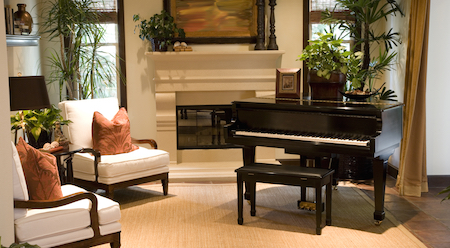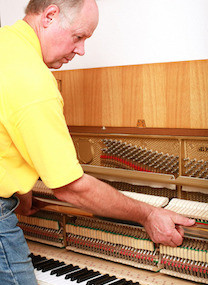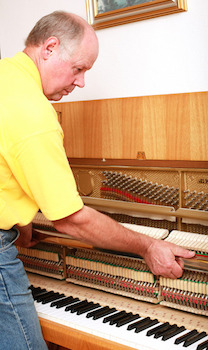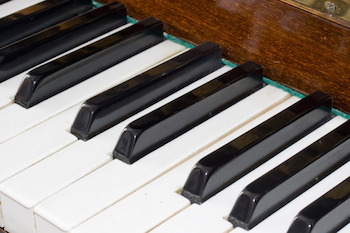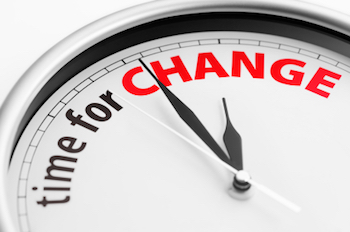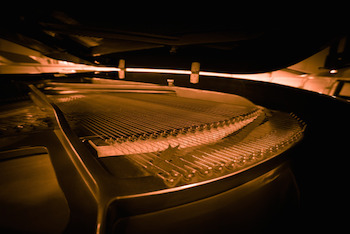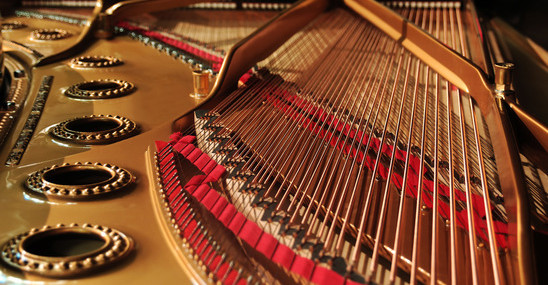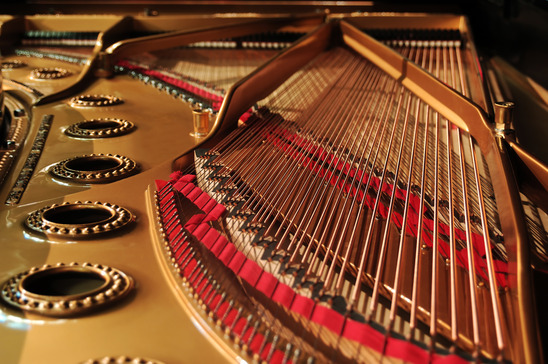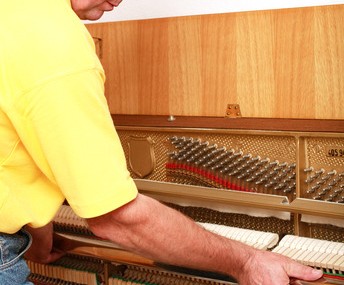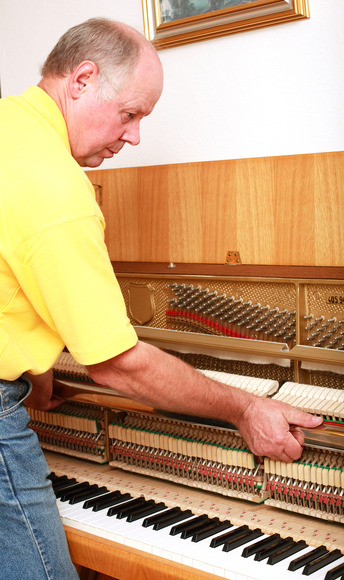Tuning a piano is an art form that takes time. If you’ve ever watched a piano tuner in action, you may have wondered why they start in the middle of the keyboard.
The initial task of a piano tuner is to set the temperament. This involves tuning the middle section of the keyboard to an equal tuned temperament. Once this is done, the rest of the strings can be set by tuning octave intervals up and down the keyboard.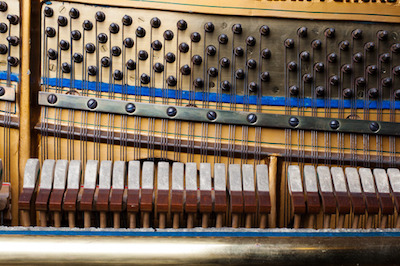
As the tuning progresses, tuning is adjusted between notes over a two octave range, starting with a single C tuning fork. You don’t have to have a perfect sense of pitch for this to occur. There are systematic methods of setting the temperament, which depend on setting intervals to natural harmonics. From there, you adjust them sharp or flat by listening to and adjusting for the specific beat rate.
Beat rates can be adjusted to the speed of a metronome and can be measured quite accurately. When a tuner is armed with a good sense of timing and an ear that knows what to listen for, he can very accurately set the temperament from a single pitch reference.
When a highly skilled tuner finishes adjusting the piano, something interesting happens. The middle of the piano will be close to perfect. But somewhere above the second octave, the notes will gradually become more sharp, while below the octave will be some flattening of the notes. The effect is known as the stretching of the upper and lower octaves. It is because a string won’t always vibrate at perfect natural harmonics. A vibrating string tends to be sharp of the natural harmonic series and becomes more pronounced as the string is made shorter or thicker.
When the tuner is tuning octave intervals up the keyboard, they tune for the best sound, compromising between the string fundamentals. A piano tuned with the upper and lower octaves stretched simply sounds better. The shape and degree of the stretching depends on the instrument in question. Pianos with longer bass strings require less stretch in the lower end.
There are algorithms and software available which will calculate a temperament for a given piano based on inharmonicity measurements. There are also tuners that can do this properly by ear.
The goal of musical instrument adjustment and tuning is to produce an instrument that sounds good. A great sounding instrument will be one that gets more play time. And that’s truly what matters most.
